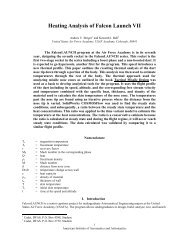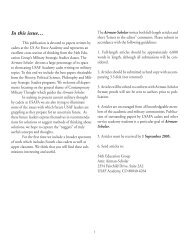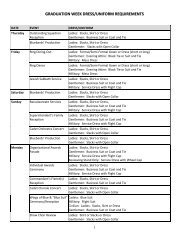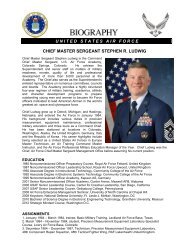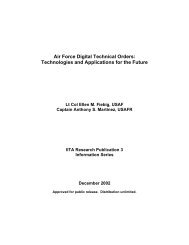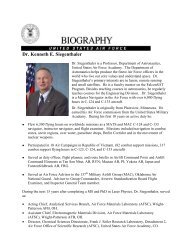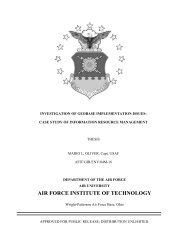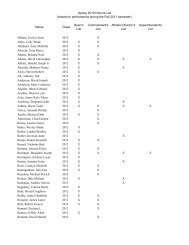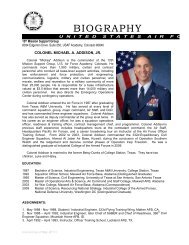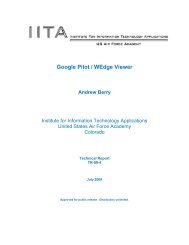the rollback of south africa's biological warfare program
the rollback of south africa's biological warfare program
the rollback of south africa's biological warfare program
Create successful ePaper yourself
Turn your PDF publications into a flip-book with our unique Google optimized e-Paper software.
as <strong>the</strong> U.S., Great Britain, and o<strong>the</strong>r countries, that full public disclosure, ei<strong>the</strong>r<br />
in parliament or in <strong>the</strong> TRC hearings, could pose a serious threat to domestic<br />
security. Foreign governments were also concerned that highly sensitive<br />
information might be leaked. Concerns about <strong>the</strong> fragile political situation that<br />
prevailed in South Africa and <strong>the</strong> possible reactions by <strong>the</strong> public or<br />
paramilitary groups to complete disclosure <strong>of</strong> Project Coast was a genuine<br />
source <strong>of</strong> concern <strong>of</strong> many South African politicians in <strong>the</strong> government and<br />
several interested foreign governments during this period. 178<br />
BASSON’S ARREST AND TRIAL AND TRC HEARINGS (1997-2000)<br />
Revelations and Roadblocks during <strong>the</strong> Truth & Reconciliation Hearing<br />
on Project Coast after Basson’s Arrest in 1997<br />
The South African Truth and Reconciliation Commission (TRC) was<br />
established at <strong>the</strong> end <strong>of</strong> 1995 when Nelson Mandela <strong>of</strong>ficially appointed <strong>the</strong><br />
Chairperson, Archbishop Desmond Tutu and Dr. Alex Boraine, Vice-<br />
Chairperson, and 17 TRC Commissioners. The mandate <strong>of</strong> <strong>the</strong> Truth and<br />
Reconciliation Commission required full disclosure and transparency about <strong>the</strong><br />
past actions <strong>of</strong> current and past government <strong>of</strong>ficials. In December 1996,<br />
Mandela’s <strong>of</strong>fice, for <strong>the</strong> first time, provided <strong>the</strong> TRC with a copy <strong>of</strong> <strong>the</strong> Steyn<br />
Report, so it could be investigated more fully. At <strong>the</strong> time, <strong>the</strong> TRC <strong>of</strong>ficials<br />
said that <strong>the</strong> information could not be released, because much <strong>of</strong> it was in <strong>the</strong><br />
form <strong>of</strong> “untested allegations.” 179<br />
The TRC was “a political compromise born out <strong>of</strong> <strong>the</strong> negotiated<br />
settlement between a minority government and <strong>the</strong> liberation movements.” It<br />
was “a compromise between those who wanted an apar<strong>the</strong>id war crimes trial<br />
and those who demanded blanket amnesty for those who had killed, tortured<br />
and committed political crimes during <strong>the</strong> apar<strong>the</strong>id era.” 180 The Commission<br />
tackled four tasks: 1) to reveal <strong>the</strong> truth about <strong>the</strong> period between 1960 and<br />
1994 in order to understand how <strong>the</strong> apar<strong>the</strong>id system developed and endured;<br />
2) to provide a forum for thousands <strong>of</strong> victims; 3) to consider what<br />
69




